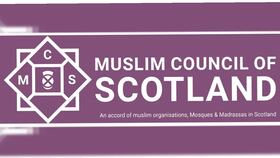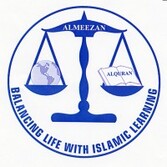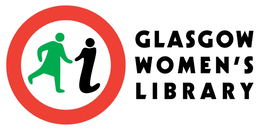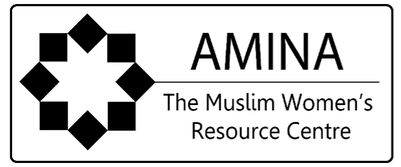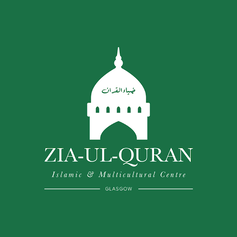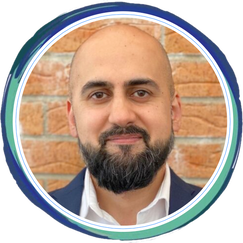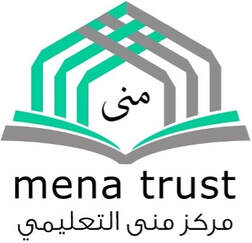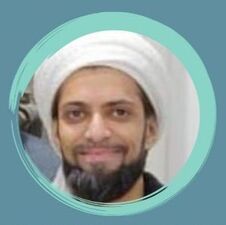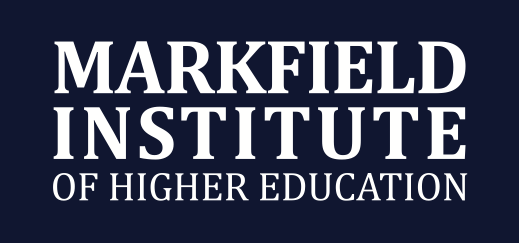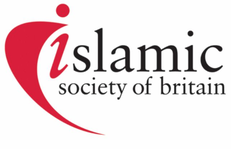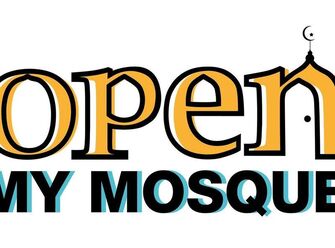AMINA Muslim Women’s Resource Centre
We welcome this report which highlights the voices of Muslim women, their experiences, and their needs in Scotland of being able to access and engage with their local mosques.
The benefits of inclusive spaces for women in mosques to our Muslim community are immense.
We hope the findings of this report will help us all in creating more inclusive spaces for Muslim women to thrive.
Shaykh Hassan Rabbani
- Imam and Chaplain
The Mosque is a sanctuary for all people and that is what we aspire to be at Zia-Ul-Quran.
The Vibrant Scottish Mosques report is an important contribution to the Scottish Muslims society in highlighting how Mosques can become a sanctuary for both Muslim men and women.
I would like to that the entire team for their hardwork and effort in putting together this report.
Yusuf Youth Initiative (YYI)
As a Muslim organisation based in Scotland, YYI has always recognised the importance of gender diversity at all levels which resonates from the top at Trustee and Constitutional Member level all the way across to our service users.
Our first female Chair marked a stark change in how we conducted business so we are intimately acquainted with the benefits of not only having women involved in the organisation but also at a leadership level.
We are all sons, brothers, husbands and in particular fathers. If we don't make changes now then our future generations will continue to face the difficulties faced by the past.
We endorse the recommendations out forward in this report and fully support their implementation in our mosques and community organisations in general.
Glasgow Mena Centre
- Abdulrahman Adhami, Glasgow Mena Centre
One of the primary purposes of mosques and similar centres and institutions is to serve its people and community.
We have some great examples of such institutions throughout Scotland that provide fantastic services and facilities that are both inclusive and welcoming for all. However there is a lot more that can be done, and as a community we have a collective responsibility for working together in addressing issues and challenges that would further enhance and improve the reach of our mosques and institutions.
This report presents a worthy contribution towards highlighting some of the challenges, through the voices of individuals from the community.
The report provides some excellent and constructive set of examples and strategies for what makes a great mosque or community space; one that serves its members well, through a combination of inclusiveness, openness and accommodating facilities and services.
Dunfermline Central Mosque, ScotlanD
Dunfermline Central Mosque welcomes and supports the launch of the report Hear My Voice by Vibrant Scottish Mosques.
Our mosque has always encouraged the attendance of women, having created a separate space for them. We have three female committee members and value their contributions to the running of our mosque.
We are happy to support and share our experience and practices with Vibrant Scottish Mosques and other mosques to enable them to be more inclusive, but also to take on feedback to enable further improvements in our own mosque.
The Alwaleed Centre for the Study of Islam in the Contemporary World, University of Edinburgh.
Hear My Voice is a carefully-researched, thorough and thoughtful report which will no doubt trigger an important Scotland-wide conversation about the role and governance of mosques in 21st Century Scotland. Moreover, the findings and recommendations outlined in this report will resonate far beyond Scotland, and we commend the report’s authors as well as the many participants who spoke so openly and honestly about their relationships with mosques up and down the country.
This report does not shy away from the complex challenges facing both mosque congregations and committees in contemporary Scotland. Like all important research, Hear My Voice seeks to challenge the status-quo, but it does so with great care, offering practical recommendations that act as an open invitation to everyone involved in the lives of Scotland’s mosques to work together to insure they are fully inclusive and fully responsive to the needs of their diverse congregations.
In a post-COVID world where gathering together in congregation and community has never felt so important, this timely report reminds us that mosques have a vital role to play in the lives of Scotland’s diverse Muslim communities
Dr Abdul-Azim Ahmed
- Deputy Director, Centre for the Study of Islam in the UK
- Secretary General, Muslim Council of Wales
The Hear My Voice report produced by Vibrant Scottish Mosques is a must-read for those involved in mosque leadership across the United Kingdom.
Mosques are in my view the most important civil society spaces in Britain, with the potential to transform our communities (in the broadest sense) for the benefit of all. The pandemic has only highlighted how vital it is to have a place for people to gather, to meet, to organise, and to worship God.
The Hear My Voice report presents barriers and challenges facing Muslim women, but also opportunities, good practice, and pathways for change to ensure mosques can serve their entire congregation as they did in the Prophetic era.
As we look toward an uncertain future, with political instability globally, concerning political developments closer to home, and the challenges facing young Muslims from Islamophobia to employment, it is vital to strengthen and develop our mosques so that they reflect the high aspirations and ideals of Islam.
Listening and learning from the voices in this report will take us towards that goal.
Mufti Usman Maravia
- National Director, British Islamic Medical Association (BIMA) Ethics Team
- Researcher, Lancaster University
- Alumnus of Darul Uloom Al-Arabiyyah Al-Islamiyyah (Bury) and Jamiatul Ilm Wal Huda (Blackburn)
May Allah accept the efforts of the team behind Vibrant Scottish Mosques and actualise their vision.
Rasulullah صلى الله عليه وآله وسلم said ‘al-rijal shaqa’iq an-nisa’ which is essentially that men and women are equal before Allah subhanahu wa ta’ala. Al-Masjid al-Haram – the first ever masjid was built for all genders. Khalilullah Ibrahim عليه السلام built the Ka’ba, which was then managed by Hajar and her child Ismail عليهما السلام and later by the tribe of Quraysh. The purpose of the masjid was to enhance spirituality within an ever evolving community. As Islam spread further away from Mecca al-Mukarrama, more masajid were proactively built. These masajid relied on donations - the most precious of these being the gold and silver jewellery donated by women.
Al-Haramain a-sharifain was open to all – the du’a ‘Allahumm-aftah li abwaba rahmatik’ applies to all genders; ‘O Allah, open your gates of mercy for me’. Women had access to al-Masjid al-Nabawi, where they would bring their children. The Prophet صلى الله عليه وآله وسلم accommodated a private space for the women, not to exclude them, but to include and accommodate for their needs, so that they would be able to attend the masajid while also being mindful of the care of their children should they need to attend to the babies or suckle them. We know this because whilst the Prophet صلى الله عليه وآله وسلم would leads prayer and he heard a baby cry, he would complete the salah sooner so as not to bring any discomfort to the mothers. Consideration for our mothers and sisters in the masjid is, therefore, a sunnah that must never be forgotten. The solution was never to not allow the women to the masjid, but to allow them with their considerations in mind.
The women had access to al-Sadiq al-Amin صلى الله عليه وآله وسلم who gave them a voice, he would listen to their marital concerns, their thoughts and their opinions on society and change, and even the hygeine of the masjid was managed by Umm Mihjan – an African lad woman. The Messenger of Allah صلى الله عليه وآله وسلم even paid a special visit to her grave to pay his respects for her services to the community.
For a woman to be heard or be allowed access to the masajid is not a privilage but a right; especially for women whose personal and family circumstances may be challenging. The engagement and contribution of these female companions of Rasulullah صلى الله عليه وآله وسلم attest to their value for the masjid - as one that was fit-for-purpose. Our mothers, wives, sisters, and daughters continue to donate to the masajid - but are our masajid fit-for-purpose? Have we listened to their concerns? Have we taken into account the situations in their lives? Concerns related to age or disability, pregnancy and maternity? The Messenger of Allah صلى الله عليه وآله وسلم said,
الذي ما معناه إن الله يحب إذا عمِل أحدُكم عملا أن يتقنَه
Meaning, ‘Allah loves to see His servants giving the best in everything they do’.
Are our masajid the best we can offer to our womenfolk and indeed to all genders in our community?
Dr Rahmanara Chowdhury
- Head of the Centre for the Study of Wellbeing, Markfield Institute of Higher Education
This is a timely and pertinent report on an issue which has long required addressing. Covid-19 has demonstrated the need for all communities to work towards specific change in relation to everyday functioning. Placing the wellbeing of individuals at the grassroots of society is fundamental to this in order for the greater collective benefit. The role of faith institutions for faith groups within this, is of particular relevance. This innovative report allows the voice of those it represents to speak for themselves, rather than being spoken for. It furthermore provides a realistic blueprint for Mosques in Scotland and the wider UK to adopt as a means of responding to the needs of their communities. It presents an invitation for Muslim communities and their institutions to rise to and accept. It further sets out the true purpose of a Mosque; as the central hub of communities, that thrives upon the inclusivity and wellbeing of its members.
Islamic Society Of Britain
- Sajid Quayum, National ISB Chair
- Memuna Chaudhry, Glasgow Chair
The Islamic Society of Britain's (ISB) has been at the forefront of working with the Muslim community for over 30 years. Our commitment to the inclusion of the whole community is reflected in our organisation which is firmly derived from the Quranic and Prophetic Vision of a healthy community.
Vibrant Scottish Mosques presents us with a report that has carefully conveyed the experiences and voices of Muslim women in Scotland that anecdotally, we have known to be true.
ISB Glasgow supports the recommendations laid out in this report and acknowledges the need for careful action to be taken to elevate the communal spiritual and social experience of the Muslim communities in Scotland.
The Islamic Society of Britain stands united and in solidarity with Vibrant Scottish Mosques. Both organisations share similar values of gender equality, a belief in strong family systems for all, and good community cohesion. We wish them success and look forward to collaborating with them.
Open My Mosque
- Anita Nayyar and Julie Siddiqi, Co-Founders of Open My Mosque
Hear My Voice offers an essential insight into what Muslim women in Scotland want from their mosques, how they perceive a healthy place for worship and how they encounter barriers to participation in worship and leadership.
For many of the reasons explained by women in this research, Muslim women’s voices all too often go unheard, are sidelined or overlooked by mosque boards as well as policymakers and politicians who seek to reach Muslims through mosque structures.
The report lays out timely and essential recommendations to make mosques inclusive places, not only for worship, community building and leadership, but as the places accessed by those seeking to know and understand Muslim communities in their entirety.
Ustadha Rumaysa Sidat
- European Institute of Islamic Sciences, Manchester
A much-needed report centring the experiences of Muslim women in the mosques of Scotland.
Very thoroughly researched, along with brilliant recommendations to improve the engagement of Muslim women in mosque spaces.
I hope that the report is a starting point in allowing the mosques in Scotland to become more women friendly, enabling the mosques to be truer to the prophetic model

